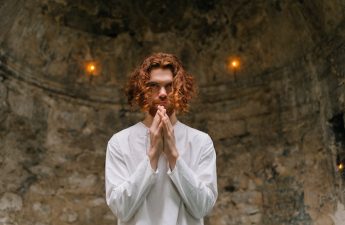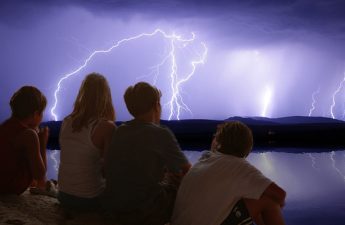Could there be any more widely separated extremes than what we’re seeing in reactions to public prayer?
 Back in 2015 (though I only just learned of it early in 2023), a certain high school football coach would, after games and when players had cleared the field, go by himself to the middle of the field. He’d kneel for less than one minute and silently thank God. He did this for several years, receiving no complaints. Then the school asked him to quit—said they didn’t want to be perceived as endorsing certain religious activity. When the school wasn’t able to make the case, they introduced a new rule that prohibited employees from “demonstrative religious activity” in or within the view of school-related activities.
Back in 2015 (though I only just learned of it early in 2023), a certain high school football coach would, after games and when players had cleared the field, go by himself to the middle of the field. He’d kneel for less than one minute and silently thank God. He did this for several years, receiving no complaints. Then the school asked him to quit—said they didn’t want to be perceived as endorsing certain religious activity. When the school wasn’t able to make the case, they introduced a new rule that prohibited employees from “demonstrative religious activity” in or within the view of school-related activities.
Then in December 2022, there was the British woman who got arrested near an abortion clinic in the UK. In some areas there, a Public Spaces Protection rule is in effect. The rule is to keep people some distance from sites where aggressive protesting is likely. I don’t know what this woman may have done in this location at other times. But at this particular time, she was quietly standing on the street (looking no different than if she’d been waiting for a bus). Not holding any signs or making declarations. A cop approached and asked whether she was praying. She honestly replied that she might be silently praying in her head, but … She was then arrested on suspicion of not complying with these rules about public spaces. The idea being that even if she was silently praying, such behavior amounts to protesting or intimidation.
Then at the other extreme …
On January 2, 2023, I was watching a TV interview in which Harris Faulkner was promoting her new book on prayer. She talked quite openly about the Lord; I mean even saying “the Lord” (which you don’t often hear in secular settings). After quite a long time of back and forth, the interviewer asked her, basically, how in today’s world and in her public arena she can be so bold about all this.
Her instant reply was, “My dad was a warrior.” Apparently, he actually was a combat pilot. She didn’t say much more about that. I assumed he’d taught her that you have to be tough/bold when you know what you’re doing, when the chips are down.
[Sidebar: How cool it would be if kids could see themselves as strong in the Lord partly because their parents/grandparents are “warriors.” If parents/grandparents intentionally beef up their faith, boldness, reliance on the armor of God … it will strengthen not only themselves but also the kids.]
Right after that Faulkner interview, I flipped channels to peek at the Bengals vs. Bills football game. A Bills player had collapsed and was unresponsive. They were resuscitating him on the field, CPR for almost 10 minutes, carried him off in an ambulance. What struck me was that almost immediately, the various sportscasters and reporters were saying that other players had dropped to their knees in prayer (all very visible), fans were tweeting prayers, some Bengals fans offered the Lord’s Prayer out loud. The reporters/sportscasters themselves were saying things like, “Our prayers are with this young man” and “All we can do is pray.” And a bit later, on the general TV news, a broadcaster stopped to pray aloud on the spot in a very real, “Dear Lord” sort of way.
Over the next couple of days, people stood outside the hospital, openly praying for this young player, some carrying signs that showed prayer support. And as one reporter indicated, these prayer messages/scenarios went beyond the casual “our thoughts and prayers are with you” that people sometimes automatically say when there’s a tragedy.
The response for the Bills player was such blatant, unapologetic prayer—and by large numbers. This was all over the news and, apparently, without criticism. And was extra amazing when contrasted against the much less visible scenarios that have been called illegal, been criticized (sometimes sarcastically), been squelched, etc.
Maybe there’s power in numbers. And maybe the critics of prayer are critical because the Lord’s real power is kinda scary, for sure. But when the chips are down, I wonder if what we all know in our heart kicks in in ways it may not when things are running smoothly. In other words, we know who’s really in charge; we know where to go when there’s trouble!
Revisit the time when Nehemiah offered a “secret” prayer (Nehemiah 2:1-5). And here’s a time when Daniel offered public prayer, even on penalty of death (Daniel 6:10-13). There are some lessons in all this somewhere!


